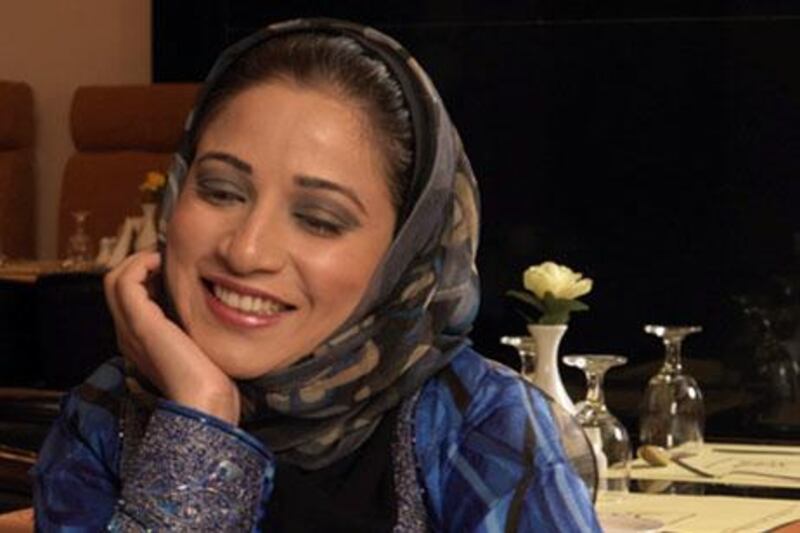MUSCAT // When Ameena al Mukaibily received her dowry of 8,200 rials (Dh78,500) in July, she decided a new house glittered more than gold.
The 26-year-old university graduate is one of an increasing number of brides in the sultanate who are abandoning the Omani tradition of newlyweds spending their wedding wealth on gold jewellery.
The trend has fans and critics. Its supporters say property is a wise investment that protects a woman if the marriage ends in divorce. But critics counter that such a change undermines Omani culture, weakens a husband's role in the marriage and, of course, hurts the gold business.
They blame women who have studied abroad for introducing such western ideas to Oman and fault permissive parents for allowing their daughters to be corrupted by modern ways. Ms al Mukaibily's views are clear. "Yes, gold is flashy and a bride gets to boast about the size of her dowry. But what else is there?" she asked. "I would rather use the money for a solid investment like a house for my future financial security."
Both her husband and her family supported her decision, said Ms al Mukaibily, who attended the University of Southampton in the UK and is now an accountant at the state-owned Muscat Electricity Distribution Company. Fatma Fallahy, a marriage counsellor in the Omani capital, says educated women across the Gulf are becoming more aware of the importance of having property in their own names. "It makes them feel secure and different from their mothers," Ms Fallahy, 75, said. "I think they see their parents' marriage as an example when everything is owned by the father. They want to change that."
Dowries in Oman, paid by the groom's family, can be as much as 15,000 rials in cash. Brides also receive expensive gifts, mostly jewellery. The mother of the bride usually receives the dowry in an elaborate ceremony before the wedding, attended solely by women. The dowry is then handed over to the bride. Bankers in Oman say they have seen more newly married women applying for mortgages. "Since 2005, the number of young women getting property loans has risen from just 12 per cent to 33 per cent of total mortgage lending compared with the first five-year period of this decade," said Khalid al Kathiry, a mortgage officer at Oman Arab Bank.
Most of the women getting loans have been married for only a few years, he said. Women say that using dowry cash to buy property rather than gold gives them some financial and personal independence. "Women in Oman get kicked out of the house when they are divorced. That won't happen to me because I own the property," said Nabeela al Raisy, a secondary schoolteacher. "Also, having a mortgage gives me the perfect reason to continue with my career," said the 31-year-old married woman.
Under Omani law, divorce settlements do not guarantee that a woman gets half of what the husband owns as in some other countries. A divorced woman also is required to leave the family house if it is owned by the man. Some young Omani men welcome the modern way. They say marrying a woman who wants to spend her money on a house rather than necklaces is appealing. "Buying or building a house these days is expensive. You need to come up with enough money to pay for the monthly repayments. If my future wife can afford that, then why not? " asked Mansoor al Adawi, a 27-year old bachelor and civil engineer.
But not all men are comfortable with the woman owning the family property. "The wife gets bossy when she pays the mortgage," Alawi al Bimani, 33, said. "I think that is the basis of a divorce when a man gets fed up with the abuse of being constantly reminded of who owns the family home." Mr al Bimani, an accountant for the ministry of electricity, said his four-year marriage ended partly because he and his wife argued over the ownership of their house.
Tribal leaders say that although they support the advance of Omani women, the ways of educated and career-oriented women threaten centuries-old customs. "A husband is like the captain of the ship. When you deny him the privilege, then the vessel will either sink or drift to unknown territory," said Sheikh Moosa al Ajmi, a tribal leader in Muscat. Other tribal leaders complain about the women's parents, saying they send their daughters abroad for higher education and often get more than what they might have expected.
"What do you expect from your daughter when she studies abroad? The answer is that they come back with skewed ideas on what married life is all about," said Sheikh Talib al Amry, another Muscat tribal leader. And then there is the country's gold trade. Some retailers complain that the sale of bridal ornaments is being hurt.
Adel Sadiq, the proprietor of Sadiq and Son Jewellery at the Seeb souq in Muscat, said sales of gold bridal ornaments are down about 20 per cent in the past five or six years. "New brides now prefer to buy single items instead of a traditional wedding set."
salshaibany@thenational.ae
Forgoing gold, Omani brides use dowries to invest
Women are increasingly using their wedding wealth for more solid investments such as property. The trend is not without its critics, who say it undermines cultural values.

Editor's picks
More from the national




